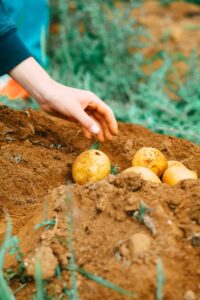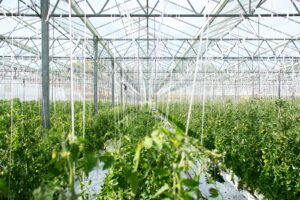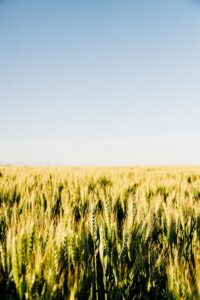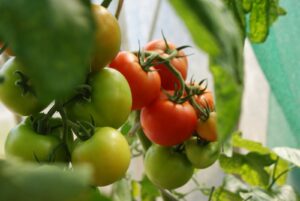Revolutionizing Agriculture with IoT-Enabled Resource Management
The Role of IoT in Optimizing Agricultural Resources
IoT for resource management in agriculture is transforming the way farmers and environmental managers operate, particularly in regions like Saudi Arabia and the UAE where water scarcity and extreme weather conditions pose significant challenges. By leveraging IoT technology, farmers can efficiently manage resources such as water, soil, and energy, leading to enhanced productivity and sustainability. IoT sensors and devices collect real-time data on soil moisture, temperature, and crop health, enabling farmers to make informed decisions that optimize the use of inputs and reduce waste.
One of the key advantages of using IoT in agriculture is the ability to implement precision farming techniques. Precision farming allows farmers to apply water, fertilizers, and pesticides only where and when they are needed, based on real-time data collected by IoT devices. This targeted approach not only improves crop yields but also conserves resources and reduces environmental impact. In Saudi Arabia, where water conservation is critical, IoT technology is playing a pivotal role in ensuring that agricultural practices are both efficient and sustainable.
Furthermore, IoT-enabled systems can provide continuous monitoring and alerts for various environmental factors, allowing farmers to respond quickly to changing conditions. For instance, if a sudden drop in soil moisture is detected, the system can automatically trigger irrigation, preventing crop stress and ensuring optimal growth conditions. This level of automation and control is essential for modern agriculture, especially in regions with harsh climates like the UAE. By integrating IoT for resource management, farmers can enhance their operations, reduce costs, and contribute to the broader goals of food security and sustainability in the region.
Enhancing Environmental Monitoring with IoT Solutions
Beyond agriculture, IoT for resource management extends to environmental monitoring, where it plays a crucial role in managing natural resources and protecting ecosystems. In cities like Riyadh and Dubai, IoT devices are deployed to monitor air and water quality, track wildlife, and manage natural resources more effectively. These IoT solutions provide valuable data that help governments and businesses make informed decisions about resource allocation, pollution control, and environmental conservation.
For example, IoT sensors can be used to monitor water levels in reservoirs, rivers, and lakes, providing real-time data that can inform water management strategies. In a region where water is a precious resource, such as Saudi Arabia, this data is invaluable for ensuring that water is used efficiently and sustainably. Additionally, IoT technology can support reforestation efforts by monitoring soil conditions and providing data that helps determine the best times and locations for planting trees. This not only enhances the effectiveness of environmental conservation projects but also contributes to the overall health and resilience of ecosystems.
In the UAE, IoT-based environmental monitoring is also being used to track urban pollution levels and develop strategies to improve air quality. By collecting data from sensors placed throughout the city, authorities can identify pollution hotspots and take targeted actions to reduce emissions. This proactive approach to environmental management aligns with the UAE’s broader vision of creating smart, sustainable cities that prioritize the health and well-being of their residents. The integration of IoT for resource management in agriculture and environmental monitoring is thus a critical component of the region’s commitment to sustainability and innovation.
Driving Business Success and Sustainability with IoT in Agriculture
Improving Efficiency and Reducing Costs in Agriculture with IoT
For businesses in the agriculture sector, IoT for resource management offers significant opportunities to improve efficiency and reduce operational costs. By leveraging IoT technology, agricultural enterprises can optimize their resource use, minimize waste, and enhance overall productivity. In Saudi Arabia and the UAE, where agriculture must adapt to challenging environmental conditions, the use of IoT is not just an advantage—it is a necessity for achieving sustainable growth.
IoT-enabled precision farming techniques allow farmers to apply inputs such as water, fertilizers, and pesticides more accurately, reducing the amount needed and lowering costs. For example, by using IoT sensors to monitor soil conditions, farmers can apply water only where it is needed, reducing both water usage and energy costs associated with irrigation. Similarly, by monitoring crop health in real-time, farmers can detect diseases early and take targeted action, preventing widespread crop loss and reducing the need for expensive treatments. These efficiencies translate into significant cost savings and higher profit margins, making IoT an essential tool for business success in agriculture.
Additionally, IoT technology provides farmers with the data they need to make informed decisions about their operations. By analyzing data from IoT devices, farmers can identify trends and patterns that help them optimize planting schedules, choose the best crop varieties, and predict market demand. This data-driven approach to agriculture enables farmers to operate more strategically, reducing risks and enhancing their competitiveness in the market. For entrepreneurs and business executives in the agriculture sector, investing in IoT for resource management is a smart decision that supports both business success and environmental stewardship.
The Future of IoT-Driven Agriculture in Saudi Arabia and the UAE
As Saudi Arabia and the UAE continue to invest in digital transformation and smart technology, the future of IoT-driven agriculture looks promising. With ongoing advancements in IoT technology, the potential for even greater efficiencies and sustainability gains is immense. For example, the integration of IoT with artificial intelligence and machine learning can provide predictive analytics that further enhances decision-making in agriculture. By predicting weather patterns, pest outbreaks, and market trends, these advanced systems can help farmers plan their operations with greater precision and confidence.
In addition to improving resource management, IoT technology also supports the broader goals of food security and sustainability in the region. As the global demand for food continues to rise, the need for efficient and sustainable agricultural practices becomes increasingly important. IoT-enabled smart farming provides a scalable solution that can help meet this demand while minimizing environmental impact. For Saudi Arabia and the UAE, embracing IoT technology in agriculture aligns with their national visions of innovation, sustainability, and economic diversification.
Moreover, the expansion of IoT in agriculture and environmental monitoring opens up new opportunities for collaboration and innovation. Governments, businesses, and research institutions can work together to develop and implement IoT solutions that address the unique challenges of the region. By fostering a culture of innovation and collaboration, Saudi Arabia and the UAE can position themselves as leaders in sustainable agriculture and environmental management, setting an example for the rest of the world.
Conclusion: The Strategic Value of IoT for Resource Management in Agriculture
IoT for resource management in agriculture is not just about technology—it is about creating a more sustainable and efficient future for farming and environmental conservation. By leveraging real-time data from IoT devices, farmers and environmental managers in Saudi Arabia and the UAE can optimize their use of resources, enhance productivity, and reduce environmental impact. This data-driven approach to agriculture and resource management is essential for achieving the region’s goals of sustainability, innovation, and economic growth.
As the adoption of IoT technology continues to grow, the potential benefits for agriculture and environmental monitoring are vast. For business executives, mid-level managers, and entrepreneurs, investing in IoT for resource management offers a clear pathway to success in the competitive agriculture sector. By embracing the power of IoT, Saudi Arabia and the UAE can lead the way in creating smart, sustainable solutions that support both business success and environmental stewardship.
—
#IoT #Agriculture #ResourceManagement #SmartFarming #DigitalTransformation #SaudiArabia #UAE #Dubai #Riyadh #Sustainability #BusinessSuccess #ModernTechnology #AI #Leadership #ProjectManagement













